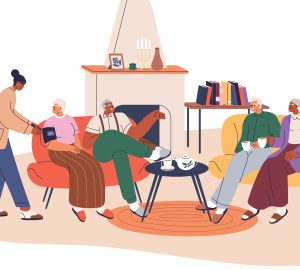Both girls and adult women give up their power, often to their detriment. There are many reasons behind this phenomenon, not the least of which is the longstanding conditioning they still absorb about being “good girls.” Let me offer you some of the most common ways girls give power away to others.
Acting like they don’t care: Isa was a sensitive 7-year-old who was annoyed with a boy who kept pestering her. She told him to stop on many occasions and finally went to her teacher for help. Her teacher’s response was to tell Isa to just mind her own business, causing her to feel dismissed and unimportant. From that day forward, she never raised her hand in class or asked people for what she needed to avoid feeling that way again. For many girls and women, their automatic response when asked what they want is “I don’t care” or “whatever you want.” This teaches people that what they have to say and their needs are not important, and therefore, they are not important. This bad habit ultimately leads to feelings of resentment and unhappiness.
Making decisions based on others’ opinions: Cecilia was a high school senior I was counseling who became paralyzed every time she had to make a decision. We discovered this behavior had its origins after she’d attended a parent-teacher conference with her mom in third grade. She overheard her teacher tell her mom that she was too bossy and if she didn’t change her ways, she’d never have any friends. Cecilia became overly sensitive to not wanting to make people mad or be disappointed in her, causing her to make decisions based on pleasing others.
Ignoring their needs: Abby, 14, has a younger brother with Downs Syndrome who almost died three times. Thus, her family had to put a lot of focus on his needs. Abby developed a belief that other people’s needs are more important than hers and that she shouldn’t even have needs. She has become great at taking care of everyone else but herself. I find this belief to be common in girls I work with.
Giving up themselves to fit in: Christina lost her best friend group in both 5th and 8th grade. She began high school wearing a lot of makeup, acting cool and hanging out with the racy kids. Before long she started feeling depressed and not herself. Girls tend to compare themselves unfavorably to their peers and media images, and as a result, they end up filled with insecurity and self-doubt. It’s hard for girls to resist the pressure of giving up their individuality to fit in and be accepted when they feel insecure.
Not handling conflict directly: Because of their fear of losing friends and ending up alone, girls avoid conflict, apologize to friends when they’ve done nothing wrong and don’t stand up for themselves. Feelings of hurt and anger are stuffed down deep and often resurface as friend drama. Girls often erroneously believe that speaking up or setting boundaries is being mean and aggressive, so they become willing to take abuse.
Allowing words to hurt them: Anytime girls allow words, teasing, rumors or gossip to affect their feelings, they are in essence letting other people be in charge of their mood, emotions and reactions. Giving their power away in this manner makes them vulnerable to ‘mean girls’ and a target for more harassment.
Giving their power away results in girls losing their confidence and often feeling anxious or depressed. I’ll end here with one of my favorite stories, an Aesop’s fable, that I tell girls to illustrate what it means to give power away. One day a hungry fox was walking down the road when he saw some birds on a tree limb. He told them that he was willing to go dig up a fat worm and give it to them, and all he wanted in return was just one of their feathers. One brave bird agreed to his offer. The fox dug up a worm, and the bird flew down, plucked out one of her feathers and gave it to the fox. The next day, the fox brought another worm, and the bird gave the fox another feather. This went on every day for a few months until one day the bird had plucked out so many of her feathers she could no longer fly. The fox ate her up. Don’t give up your feathers or you’ll lose your ability to fly.
Tim Jordan, M.D., is a Behavioral Pediatrician who counsels girls aged grade school thru college. Listen to his weekly podcast, Raising Daughters, to gain information on raising strong, resilient girls. For more info on Dr. Jordan’s retreats, summer camps and books visit drtimjordan.com.








